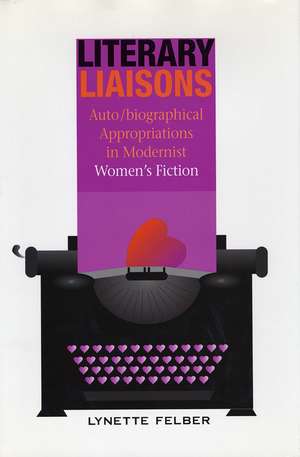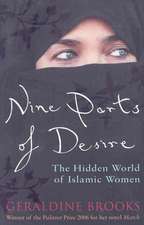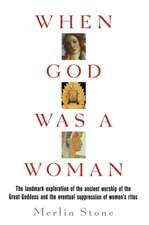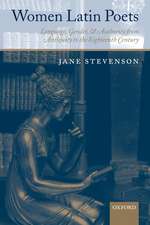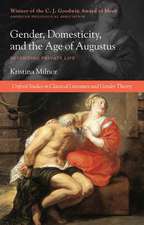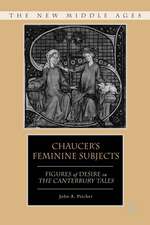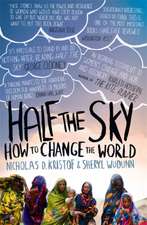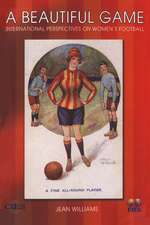Literary Liaisons: Auto/biographical Appropriations in Modernist Women's Fiction
Autor Lynette Felberen Hardback – 22 sep 2002
Unhappy relationships are the stuff of fiction—or so Lynette Felber observes as she examines the lives and fiction of five modernist women writers whose lovers were also literary figures. Focusing on Anaïs Nin, Rebecca West, Zelda Fitzgerald, Radclyffe Hall, and H.D., she investigates the ways these female authors made use of their relationships in their fiction. Whether heterosexual or lesbian, these women struggled to assert the authority of their own literary voices and to achieve professional recognition distinct from their partners.
The modernist period, when British and American women first began to exercise their newly granted political rights, provides a particularly interesting backdrop for this study of literary appropriation. Using feminist and psychoanalytical theory, Felber views these emerging authors' fictionalized struggles as reenactments of the process by which the self differentiates itself from the Other. The literary liaison is the site where the female writer's professional identity is enacted, contested, and finally empowered or suppressed. As she examines the impact of literary relationships on modernist women writers, Felber reveals their preoccupation with attaining the status of "subject."
The writers discussed in Literary Liaisons are well known for their various work—Rebecca West for her journalism, Anaïs Nin for her erotica, H.D. for her imagist poetry—as well as for their associations with such celebrated partners as H. G. Wells, F. Scott Fitzgerald, and Henry Miller. The conflicts reflected in the five modernist women's writings stir a voyeuristic curiosity about the autobiographical truths that may lurk behind every fiction.
The modernist period, when British and American women first began to exercise their newly granted political rights, provides a particularly interesting backdrop for this study of literary appropriation. Using feminist and psychoanalytical theory, Felber views these emerging authors' fictionalized struggles as reenactments of the process by which the self differentiates itself from the Other. The literary liaison is the site where the female writer's professional identity is enacted, contested, and finally empowered or suppressed. As she examines the impact of literary relationships on modernist women writers, Felber reveals their preoccupation with attaining the status of "subject."
The writers discussed in Literary Liaisons are well known for their various work—Rebecca West for her journalism, Anaïs Nin for her erotica, H.D. for her imagist poetry—as well as for their associations with such celebrated partners as H. G. Wells, F. Scott Fitzgerald, and Henry Miller. The conflicts reflected in the five modernist women's writings stir a voyeuristic curiosity about the autobiographical truths that may lurk behind every fiction.
Preț: 351.70 lei
Nou
Puncte Express: 528
Preț estimativ în valută:
67.30€ • 71.96$ • 56.11£
67.30€ • 71.96$ • 56.11£
Carte tipărită la comandă
Livrare economică 18 aprilie-02 mai
Preluare comenzi: 021 569.72.76
Specificații
ISBN-13: 9780875803012
ISBN-10: 0875803016
Pagini: 246
Dimensiuni: 152 x 229 x 25 mm
Greutate: 0.52 kg
Ediția:1
Editura: Northern Illinois University Press
Colecția Northern Illinois University Press
ISBN-10: 0875803016
Pagini: 246
Dimensiuni: 152 x 229 x 25 mm
Greutate: 0.52 kg
Ediția:1
Editura: Northern Illinois University Press
Colecția Northern Illinois University Press
Recenzii
"Original and highly readable.... A significant contribution to the fields of modernism and women's literature."—Holly Laird, University of Tulsa
Notă biografică
Lynette Felber, author of Gender and Genre in Novels without End: The British Roman-Fleuve, is editor-in-chief of the interdisciplinary journal Clio. She is Professor of English at Indiana University–Purdue University, Fort Wayne.
Cuprins
Table of Contents
Illustrations
Preface
Acknowledgments
Introduction—"Books Not of the Imagination"
1. The Many Faces of June—Anaïs Nin's Appropriation of Feminine Writing
2. Revenge and Parodic Appropriation in Rebecca West's Sunflower
3. Zelda Fitzgerald's Save Me the Waltz—Household Plagiarism and Other Crimes of the Heart
4. Accomodation in Radclyffe Hall's The Forge
5. The Writer Self in H.D.'s Auto/biographical Fiction
Afterword—Alternative Mentors and Modes of Collaboration
Notes
Works Cited
Index
Preface
Acknowledgments
Introduction—"Books Not of the Imagination"
1. The Many Faces of June—Anaïs Nin's Appropriation of Feminine Writing
2. Revenge and Parodic Appropriation in Rebecca West's Sunflower
3. Zelda Fitzgerald's Save Me the Waltz—Household Plagiarism and Other Crimes of the Heart
4. Accomodation in Radclyffe Hall's The Forge
5. The Writer Self in H.D.'s Auto/biographical Fiction
Afterword—Alternative Mentors and Modes of Collaboration
Notes
Works Cited
Index
Descriere
Unhappy relationships are the stuff of fiction—or so Lynette Felber observes as she examines the lives and fiction of five modernist women writers whose lovers were also literary figures. Focusing on Anaïs Nin, Rebecca West, Zelda Fitzgerald, Radclyffe Hall, and H.D., she investigates the ways these female authors made use of their relationships in their fiction. Whether heterosexual or lesbian, these women struggled to assert the authority of their own literary voices and to achieve professional recognition distinct from their partners.
The modernist period, when British and American women first began to exercise their newly granted political rights, provides a particularly interesting backdrop for this study of literary appropriation. Using feminist and psychoanalytical theory, Felber views these emerging authors' fictionalized struggles as reenactments of the process by which the self differentiates itself from the Other. The literary liaison is the site where the female writer's professional identity is enacted, contested, and finally empowered or suppressed. As she examines the impact of literary relationships on modernist women writers, Felber reveals their preoccupation with attaining the status of "subject."
The writers discussed in Literary Liaisons are well known for their various work—Rebecca West for her journalism, Anaïs Nin for her erotica, H.D. for her imagist poetry—as well as for their associations with such celebrated partners as H. G. Wells, F. Scott Fitzgerald, and Henry Miller. The conflicts reflected in the five modernist women's writings stir a voyeuristic curiosity about the autobiographical truths that may lurk behind every fiction.
The modernist period, when British and American women first began to exercise their newly granted political rights, provides a particularly interesting backdrop for this study of literary appropriation. Using feminist and psychoanalytical theory, Felber views these emerging authors' fictionalized struggles as reenactments of the process by which the self differentiates itself from the Other. The literary liaison is the site where the female writer's professional identity is enacted, contested, and finally empowered or suppressed. As she examines the impact of literary relationships on modernist women writers, Felber reveals their preoccupation with attaining the status of "subject."
The writers discussed in Literary Liaisons are well known for their various work—Rebecca West for her journalism, Anaïs Nin for her erotica, H.D. for her imagist poetry—as well as for their associations with such celebrated partners as H. G. Wells, F. Scott Fitzgerald, and Henry Miller. The conflicts reflected in the five modernist women's writings stir a voyeuristic curiosity about the autobiographical truths that may lurk behind every fiction.
